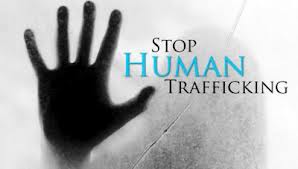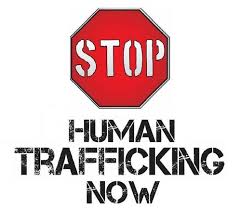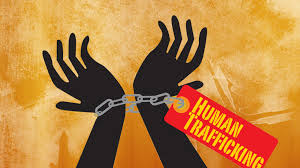Putting a Stop to Human Trafficking
 Evan Lee, an Associate at The Volkov Law Group, joins us for a post on the new anti-human trafficking rules. Evan can be reached at [email protected]. His bio is here.
Evan Lee, an Associate at The Volkov Law Group, joins us for a post on the new anti-human trafficking rules. Evan can be reached at [email protected]. His bio is here.
Consistent with the US Government’s zero tolerance policy concerning human trafficking, a cadre of government agencies recently published a final rule amending the current Federal Acquisition Regulations provisions on human trafficking.
Taking effect March 2, 2015 and entitled “Ending Trafficking in Persons,” the rule imposes significant new requirements on all contractors and subcontractors, regardless of contract type and value, concerning their efforts to avoid human trafficking. The rule imposes additional requirements on contractors and subcontractors who provide supplies acquired abroad or who perform services abroad with an estimated value of over $500,000.
The rule prohibits all contractors from engaging in a range of human trafficking-related activities, including engaging in fraudulent or misleading recruitment practices; using recruiters who do not comply with local labor laws or who charge employees recruitment fees; failing to provide return transportation for non-national employees brought into a host country; procuring commercial sex acts during the performance of a contract; using forced labor to perform the contract; providing housing that fails to meet host country safety laws; and failing to provide written employment agreements that include information concerning the scope of the work, the employee’s wages, and the employee’s rights under the rule.
The rule also imposes self-reporting obligations and provides for mandatory flow-down to subcontractors. These obligations include providing all employees with notice of rule’s prohibitions; immediately notifying the contracting officer and the relevant agency Inspector General upon receipt of “credible information” that an employee, subcontractor, or agent has violated the rule; and fully cooperating with investigating agencies and agencies charged with enforcing compliance.
Violations may result in suspension of contract payments, termination, suspension, debarment, and False Claims Act liability as well as liability under other laws and regulations.
Reports of substantiated violations will be posted in the Federal Awardee Performance and Integrity Information System (FAPIIS). The rule requires contractors to actively monitor subcontractors, as the violations of subcontractors post to the FAPIIS record of the prime contractor. Prime contractors are afforded the ability to file a response to the post where they may list mitigating factors ranging from prior implementation of a compliance program or remedial action to address the violation.
In addition to these requirements, prospective contractors must certify that they have implemented an anti-human trafficking compliance plan to prevent violations and have performed due diligence on their agents and subcontractors where the contract includes supplies acquired, and services performed, outside the United States with an estimated value exceeding $500,000. The compliance plan must, at minimum, include an awareness program that informs employees about human trafficking policies; a reporting process where employees may report suspected violations without fear of retaliation; recruitment, wage, and housing plans that comply with the rule; and procedures to monitor, detect, and resolve the actions and violations of agents and subcontractors. Contractors must also certify annually throughout the contract duration that neither they, nor any of their agents or subcontractors, have engaged in human trafficking violations and that they have taken appropriate actions to remedy identified violations (if applicable). Contracts for commercial off-the-shelf (“COTS”) items, which are items sold in substantial quantities and offered without modification in the same form in which they are sold in the marketplace, are exempted from these additional requirements even if their value surpasses the $500,000 threshold.
 The rule provides contractors and prospective contractors with two critical takeaways. First, the rule makes clear that the government expects contractors to engage in self-regulation through effective monitoring and compliance programs designed to prevent, detect, and resolve human trafficking violations. This is consistent with general compliance trends in related areas such as anticorruption. Second, the rule shoulders prime contractors with an ongoing policing role over the human trafficking violations of agents and subcontractors. The net result is a cost shift of the enforcement duty from government to private entities, which may significantly burden some prime contractors as they implement policies and procedures designed to carry out their policing function.
The rule provides contractors and prospective contractors with two critical takeaways. First, the rule makes clear that the government expects contractors to engage in self-regulation through effective monitoring and compliance programs designed to prevent, detect, and resolve human trafficking violations. This is consistent with general compliance trends in related areas such as anticorruption. Second, the rule shoulders prime contractors with an ongoing policing role over the human trafficking violations of agents and subcontractors. The net result is a cost shift of the enforcement duty from government to private entities, which may significantly burden some prime contractors as they implement policies and procedures designed to carry out their policing function.
The Volkov Law Group specializes in the drafting and implementation of proven, cost-effective compliance policies designed to reach the balance between the client’s business objectives and the law’s compliance requirements. If you have any questions, please contact Michael Volkov ([email protected]) or Evan Lee ([email protected]).














